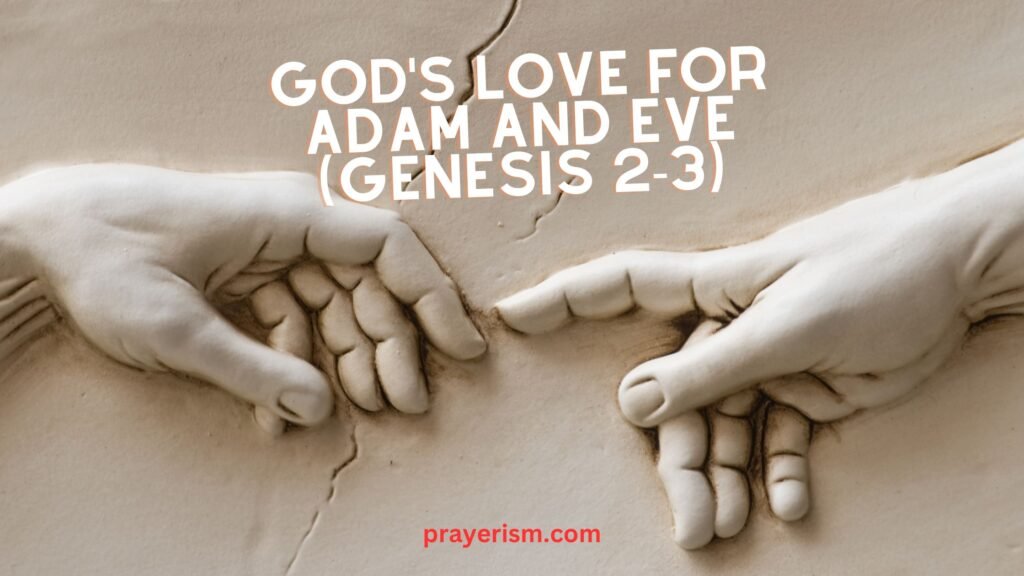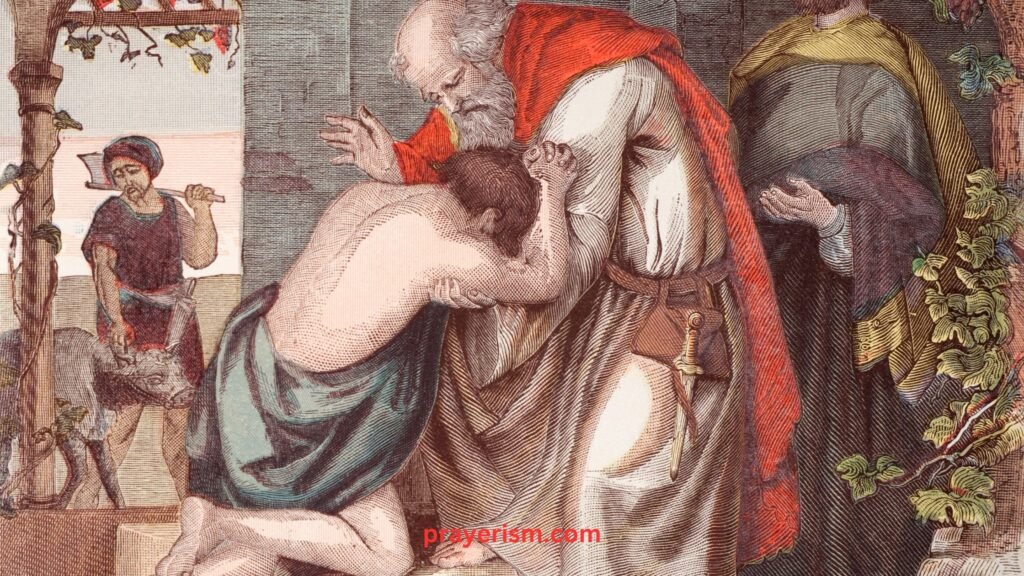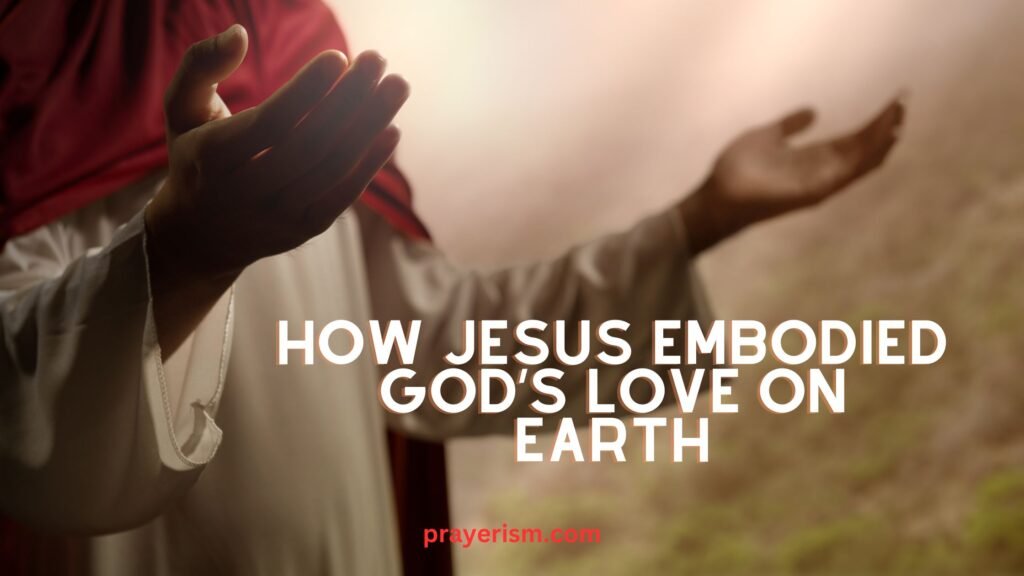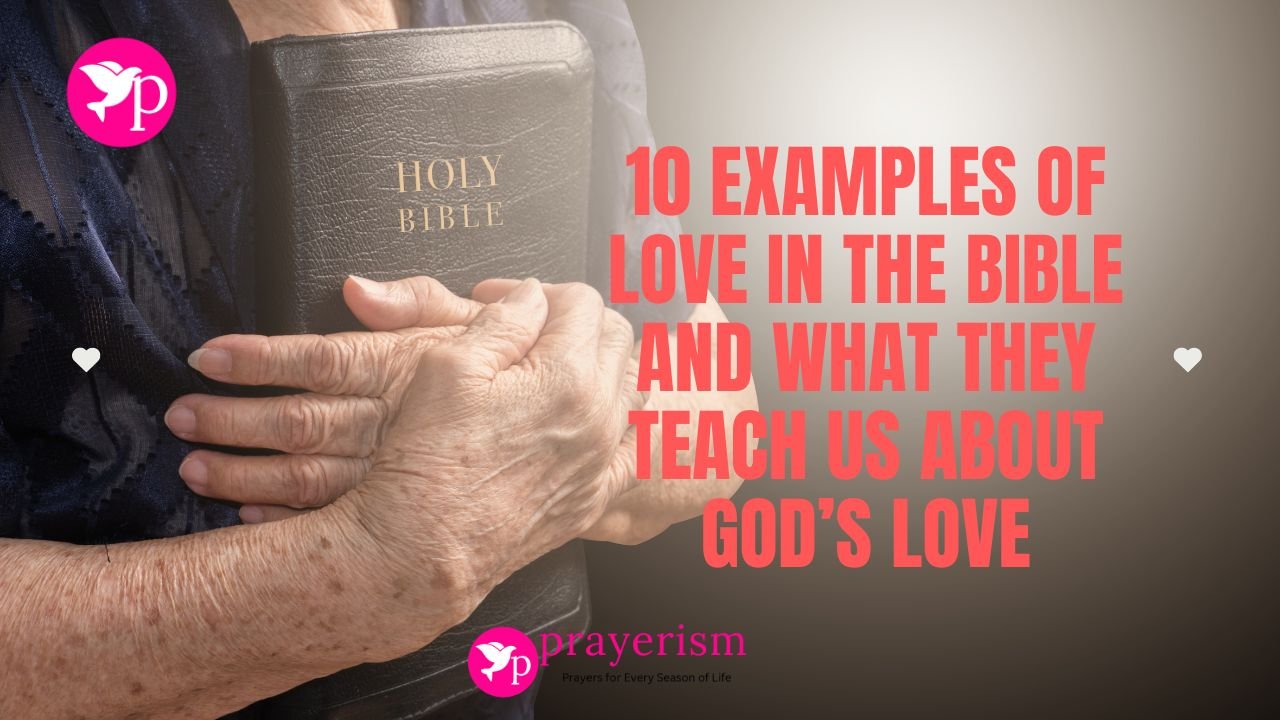The Bible is often regarded as one of the most profound love stories ever written. As a collection of books spanning centuries, its central message remains consistent: God’s love for humanity. The Bible reveals countless instances of love—love between people, love for God, and most importantly, God’s love for us. These stories inspire us and teach valuable lessons about the nature of divine love, encouraging us to reflect that love in our lives.
In this article, we will explore 10 powerful examples of love in the Bible and what each one reveals about God’s character and His boundless love for humanity. We will also look at how these lessons can be applied in today’s world, deepening our faith and relationships.
What Does the Bible Teach About Love?
Before we proceed into specific examples, it’s essential to understand that the Bible’s teachings on love are vast and profound. At its core, the Bible teaches us that God is love (1 John 4:8). This means that love is not just something God does; it is the very essence of who He is. His love is the foundation of how we are called to live, guiding our relationships with Him and with others.
From the Old Testament to the New, love is consistently portrayed as the highest virtue. One of the most significant teachings on love comes from the words of Jesus, who summarized the entire law in two commandments: “Love the Lord your God with all your heart and with all your soul and with all your mind” and “Love your neighbor as yourself” (Matthew 22:37-40). These commandments echo throughout both the Old and New Testaments, emphasizing that love is the greatest virtue we can possess.
In fact, the apostle Paul famously writes in 1 Corinthians 13:13 that of faith, hope, and love, “the greatest of these is love.” Love is the overarching principle that governs our relationship with God and with each other. Without love, our faith and religious practices are hollow. Paul further describes love as patient, kind, not envious, not boastful, not proud (1 Corinthians 13:4-7)—a love that reflects the very nature of God.
10 Examples of Love in the Bible
Let’s now look at ten key examples of love in the Bible and what each teaches us about God’s nature and His expectations for us.
1. God’s Love for Adam and Eve (Genesis 2-3)

The first example of love we encounter in the Bible is God’s creation of Adam and Eve. In the Garden of Eden, God provides for every need of His creation, showing a deep, personal care for humanity. He creates a beautiful environment where Adam and Eve can flourish, giving them dominion over creation and providing companionship. Even after Adam and Eve disobeyed God by eating from the forbidden tree, He did not abandon them. Instead, He clothed them (Genesis 3:21) and promised that one day, redemption would come through the offspring of the woman.
Despite their rebellion, God’s love remained evident in His continued interaction with humanity. This act of clothing them symbolizes God’s care for their well-being, foreshadowing the future covering of sin through Jesus Christ.
What It Teaches Us: God’s love is personal, unconditional, and enduring. Even when humanity fails, God’s love remains steadfast, and He continues to provide for us. This story reminds us that despite our mistakes, God’s love does not waver—He remains committed to His plan of redemption.
Trust in God’s grace and provision, even when you feel unworthy of His love. His love is not based on our actions but on His nature. No matter the sin, God calls us back into a relationship with Him, just as He did with Adam and Eve.
2. Abraham’s Sacrificial Love for God (Genesis 22)
In Genesis 22, we see Abraham’s love and obedience to God tested when he is asked to sacrifice his only son, Isaac. This request is shocking, especially considering that Isaac was the child of promise—the fulfillment of God’s covenant with Abraham. Yet, Abraham’s willingness to obey, even in such a difficult moment, demonstrates the depth of his love and trust in God. As Abraham raises the knife, God intervenes, providing a ram for the sacrifice and reaffirming His covenant with Abraham, saying, “Because you have done this and have not withheld your son, your only son, I will surely bless you” (Genesis 22:16-17).
This story is a profound foreshadowing of God’s own sacrificial love. Like Abraham’s willingness to sacrifice Isaac, God would later give His own Son, Jesus, as a sacrifice for the sins of the world.
What It Teaches Us: Abraham’s story teaches us that love is often sacrificial and that true faith requires absolute trust in God’s plan, even when we don’t understand it. This act of obedience mirrors the greatest act of love—God’s sacrifice of His own Son for our salvation.
Always Be willing to make sacrifices for your faith and for others. Love is not always easy, and it often requires putting others’ needs above our own. In our relationships, we are called to love selflessly, even when it’s difficult or costly.
3. Ruth’s Loyalty to Naomi (Ruth 1:16-17)
The book of Ruth contains one of the most beautiful expressions of love and loyalty in the Bible. After the death of her husband, Ruth, a Moabite woman, chooses to stay with her mother-in-law, Naomi, rather than returning to her own people. Despite having no obligation to remain with Naomi, Ruth declares, “Where you go, I will go; where you stay, I will stay. Your people will be my people and your God my God” (Ruth 1:16).
Ruth’s devotion to Naomi is an example of selfless, steadfast love. Even when it would have been easier for her to return home and find another husband, she chose to stay and care for Naomi, demonstrating a love that transcends personal gain or convenience.
Interestingly, Ruth’s loyalty ultimately leads to her becoming the great-grandmother of King David and part of the lineage of Jesus Christ. Her love and faithfulness had far-reaching consequences that she could not have imagined at the time.
What It Teaches Us: Ruth’s story shows us that love is not just a feeling but a commitment. Her loyalty mirrors God’s unwavering commitment to His people, even in difficult times. God honors steadfast love and faithfulness, using it to accomplish His greater purposes.
Show loyalty and love to those around you, especially during times of hardship. True love remains steadfast, even when circumstances are challenging. Like Ruth, we are called to love others with a devotion that reflects God’s faithfulness to us.
4. Hosea’s Redemptive Love for Gomer (Hosea 1-3)

The prophet Hosea’s marriage to Gomer is one of the most striking examples of God’s redemptive love in the Bible. Gomer, Hosea’s wife, is repeatedly unfaithful, yet God commands Hosea to love her and take her back, despite her infidelity. This marriage is a living metaphor for God’s relationship with Israel. Just as Gomer is unfaithful to Hosea, Israel had been unfaithful to God, turning to idols and abandoning their covenant with Him. Yet, God’s love for Israel remained, and He continually sought to restore His people, calling them back to Himself.
Hosea’s love for Gomer reflects God’s persistent, patient, and redemptive love. Despite her betrayal, Hosea redeems her, buying her back from slavery and restoring her to a position of honor.
What It Teaches Us: Hosea’s story illustrates that God’s love is patient, redemptive, and forgiving. Even when we are unfaithful to Him, God’s love pursues us and offers forgiveness and restoration. His love is not conditional on our faithfulness but is rooted in His unchanging character.
Extend grace and forgiveness to those who have wronged you. Just as God continually seeks to redeem us, we too are called to forgive and love unconditionally. Love is not based on the worthiness of the recipient but on the character of the one who loves.
5. The Father’s Love in the Parable of the Prodigal Son (Luke 15:11-32)
One of the most famous parables Jesus told is the story of the prodigal son. In this parable, a young man demands his inheritance from his father, effectively wishing him dead. He then leaves home and squanders his inheritance on reckless living. After hitting rock bottom, he decides to return home, hoping to be accepted as a servant. However, his father sees him from a distance, runs to him, embraces him, and celebrates his return with a feast.

This parable is a powerful illustration of God’s love for us. No matter how far we stray, no matter how much we squander the blessings we’ve been given, God is always waiting with open arms, ready to forgive and restore us. The father’s response to the prodigal son is one of compassion, grace, and joy.
What It Teaches Us: The parable of the prodigal son teaches us that God’s love is patient, forgiving, and welcoming. There is no sin too great, no distance too far, that can separate us from His love. God does not wait for us to prove ourselves worthy of His love; He loves us simply because we are His children.
Practice forgiveness and compassion, especially toward those who have made mistakes. Like the father in the parable, we are called to forgive freely and celebrate the return of those who seek reconciliation. God’s love is patient, and we are called to reflect that patience in our relationships.
6. Jesus’ Compassion for the Sick and Sinners (Matthew 9:35-36)
Throughout His ministry, Jesus demonstrated incredible compassion for the sick, the poor, and the outcasts of society. He healed the blind, cleansed lepers, fed the hungry, and forgave the sins of those whom society had rejected. His actions reflected God’s heart for those who are suffering. One of the most touching moments of Jesus’ compassion is found in Matthew 9:35-36, where it says, “When He saw the crowds, He had compassion on them, because they were harassed and helpless, like sheep without a shepherd.”
Jesus’ compassion wasn’t just for those who were physically sick but also for those who were spiritually lost. He reached out to sinners, tax collectors, and prostitutes—those considered unworthy by the religious leaders of the time. His love broke down societal barriers and extended to everyone, regardless of their past or social status.
What It Teaches Us: Jesus’ compassion shows that God’s love is merciful and tender. He cares deeply about those who are hurting and broken and extends His love to all, regardless of their circumstances. His love reaches out with healing and restoration to those whom society often overlooks.
Show compassion to those who are in need. Whether through acts of kindness, service, or simply being present for someone, we are called to reflect God’s love to the world around us. Like Jesus, we should seek out those who are marginalized and offer them love, care, and support.
7. Jesus Washing the Disciples’ Feet (John 13:1-17)
One of the most profound acts of humility and love in the Bible is when Jesus, the Son of God, washes His disciples’ feet. In the culture of the time, foot-washing was a task reserved for the lowest servants. Yet, in John 13:1-17, Jesus takes on this role, shocking His disciples by kneeling before them and washing their feet. He did this to teach them—and us—about servant leadership and selfless love.
After washing their feet, Jesus tells His disciples, “Now that I, your Lord and Teacher, have washed your feet, you also should wash one another’s feet” (John 13:14). In other words, true love is not about power or authority but about serving others with humility and grace.
What It Teaches Us: Jesus’ act of washing His disciples’ feet shows that God’s love is humble and selfless. True love is not concerned with status or recognition but with meeting the needs of others. Jesus’ love is expressed through acts of humility and service, reminding us that to love like Him, we must be willing to serve.
Serve others with humility, regardless of your status or position. Love is not about being served but about serving those around you with a joyful heart. Whether in your family, workplace, or community, look for opportunities to show love through service.
8. Jesus’ Prayer for Unity Among Believers (John 17:20-23)
Before His crucifixion, Jesus prayed for His disciples and for all believers, asking God to make them one as He and the Father are one. This prayer for unity reflects Jesus’ deep desire for His followers to be united in love and purpose. In John 17:20-23, Jesus prays, “I pray also for those who will believe in me through their message, that all of them may be one, Father, just as you are in me and I am in you.”
This prayer for unity is a powerful reminder that love is the foundation of the Christian community. Jesus knew that His followers would face challenges, divisions, and disagreements, but His prayer was that they would remain united in love, just as He was united with the Father.
What It Teaches Us: Love unites. Jesus’ prayer shows that love is the foundation of unity within the body of Christ. God’s love brings people together, breaking down barriers and fostering community. When we are united in love, we reflect the unity of the Father, Son, and Holy Spirit.
Strive for unity in your relationships, communities, and churches. Seek peace, understanding, and mutual respect, knowing that love is the key to maintaining unity. When disagreements arise, approach them with a spirit of love and reconciliation.
9. God’s Covenant Love for Israel (Exodus 19-24)
In the Old Testament, God establishes a covenant with the people of Israel, promising to be their God if they follow His commands. Despite Israel’s repeated disobedience, God remains faithful to His covenant, continually calling them back to Himself. In Exodus 19-24, we see the establishment of this covenant, where God promises to bless and protect Israel as His chosen people.
Throughout the history of Israel, the people turned away from God time and time again, worshiping idols and breaking the commandments. Yet, God’s love for them did not falter. Even in their rebellion, God sent prophets to call them back to repentance, offering forgiveness and restoration.
What It Teaches Us: God’s love is faithful and enduring. Even when we are unfaithful, God’s love remains steadfast. His covenant with Israel is a powerful reminder that His commitment to us is based on His faithfulness, not ours. God’s love is not conditional on our behavior—it is rooted in His unchanging nature.
Be faithful in your commitments and relationships. God’s unwavering love for us should inspire us to be reliable and trustworthy in our interactions with others. Even when others fall short, we are called to love with a faithfulness that reflects God’s covenant love.
10. Jesus’ Ultimate Sacrifice on the Cross (John 3:16, Romans 5:8)
The ultimate example of love in the Bible is Jesus’ death on the cross. In John 3:16, we read, “For God so loved the world that He gave His one and only Son, that whoever believes in Him shall not perish but have eternal life.” This act of sacrifice is the greatest demonstration of love the world has ever seen.
Jesus’ willingness to die for the sins of humanity shows that God’s love knows no bounds. In Romans 5:8, Paul writes, “But God demonstrates His own love for us in this: While we were still sinners, Christ died for us.” Jesus did not wait for us to become worthy of His love; He loved us while we were still sinners and gave His life to redeem us.
What It Teaches Us: God’s love is unconditional and sacrificial. The cross is the ultimate expression of love, showing that God was willing to give everything for our redemption. He did not spare His own Son but gave Him up for us all, demonstrating a love that is beyond comprehension.
Live sacrificially for others, putting their needs and well-being above your own. Just as Jesus gave His life for us, we are called to love others sacrificially. This might mean giving up our time, resources, or comfort to serve others and reflect the love of Christ.
Different Types of Love in the Bible (Agape, Phileo, Eros, Storge)
The Bible speaks of different kinds of love, each with its own nuance and expression. Understanding these distinctions helps us grasp the depth and variety of love in the Bible:
- Agape: Unconditional, selfless love, often associated with God’s love for humanity. This is the highest form of love, characterized by self-sacrifice and a commitment to the well-being of others, even at personal cost.
- Phileo: Brotherly love, the kind of love shared between friends. This love is affectionate and reciprocal, highlighting the importance of deep, meaningful relationships.
- Eros: Romantic love, typically found in marriage. This love is passionate and intimate, representing the bond between husband and wife.
- Storge: Familial love, the bond between family members. This love is natural and instinctive, reflecting the care and loyalty that exists within families.
While Agape love is the highest form, all types of love are important and reflect different aspects of God’s character. God’s love encompasses all these forms, and we are called to express them in our relationships.
How Jesus Embodied God’s Love on Earth
During His time on earth, Jesus was the perfect embodiment of God’s love. His entire ministry was focused on showing love to others—healing the sick, feeding the hungry, forgiving sinners, and ultimately giving His life for humanity. Through His actions, Jesus demonstrated that God’s love is not just an abstract concept but something tangible and real.

Jesus’ life teaches us that love is active. It’s not enough to simply say we love someone; we must show it through our actions. Whether through acts of service, kindness, or sacrifice, Jesus showed us that true love is expressed by how we treat others.
One of the most striking examples of Jesus’ love in action is found in John 15:13, where Jesus says, “Greater love has no one than this: to lay down one’s life for one’s friends.” This ultimate act of love, the willingness to give up one’s life for others, is the foundation of Jesus’ mission on earth and reflects the depth and commitment of God’s love for humanity.
Jesus did not just preach love—He lived it out daily. He touched the untouchable, spoke to the outcasts, and forgave those who were considered unforgivable. His love was inclusive, compassionate, and sacrificial, always seeking the well-being of others above His own. Even at the Last Supper, knowing the suffering He was about to endure, Jesus took time to comfort His disciples, demonstrating love and care until the end.
Reflect on how you can embody Christ’s love in your daily life. Look for opportunities to serve others, especially those who may be marginalized or overlooked. Remember that love isn’t just about words but about actions that reflect God’s heart.
How These Examples Transform Our Understanding of God’s Love
Each of the 10 examples of love in the Bible teaches us something unique about God’s love. From His unconditional grace to His sacrificial nature, God’s love is multifaceted and profound. These stories remind us that God’s love is not something we earn; it is a gift freely given. No matter how far we have fallen or how undeserving we may feel, God’s love is always available, waiting for us to return to Him.
One of the most significant transformations that comes from understanding these examples is the realization that God’s love is proactive. In each story, God does not wait for humanity to seek Him out—He takes the initiative to show love, whether through providing for Adam and Eve, calling Israel back from their disobedience, or sending Jesus to die for our sins. This proactive love challenges us to not only accept God’s love but to extend it actively to others.
Furthermore, these examples teach us that God’s love is enduring. In a world where love is often conditional or fleeting, the Bible reveals a love that is steadfast and unchanging. This gives us confidence in our relationship with God, knowing that His love is not based on our performance but on His unchanging character.
Applying These Lessons to Our Lives:
- Forgiveness: Like the father in the parable of the prodigal son, we are called to forgive others freely, without holding grudges. Forgiveness is an essential part of love, and it reflects the way God forgives us. Consider how you can extend forgiveness in your relationships, even when it’s difficult.
- Sacrifice: Whether it’s Abraham’s willingness to sacrifice Isaac or Jesus’ ultimate sacrifice on the cross, these stories remind us that love often requires sacrifice. In our relationships, we may be called to give up our time, comfort, or resources for the sake of others. Ask yourself: What can I sacrifice to show love to those around me?
- Compassion: Jesus’ compassion for the sick and sinners shows us that love reaches out to those in need. We are called to be compassionate, not just in words but in action. Look for ways to help those who are hurting, whether through acts of kindness, support, or simply being present for someone in their time of need.
- Humility: Jesus washing His disciples’ feet is a powerful example of how love requires humility. In a world that often values status and power, we are called to serve others, even in the most humble ways. Consider how you can practice humility in your interactions with others, putting their needs above your own.
Bible Verses About God’s Love You Should Know
Here are some additional Bible verses that highlight the nature of God’s love and how we are called to reflect it in our lives:

- Romans 8:38-39: “For I am convinced that neither death nor life, neither angels nor demons, neither the present nor the future, nor any powers, neither height nor depth, nor anything else in all creation, will be able to separate us from the love of God that is in Christ Jesus our Lord.”
This verse reminds us that nothing can separate us from God’s love. His love is constant and unshakable, offering us security and hope. - 1 John 4:7-8: “Dear friends, let us love one another, for love comes from God. Everyone who loves has been born of God and knows God. Whoever does not love does not know God, because God is love.”
This passage emphasizes that love is the defining characteristic of those who know God. Our love for others is the evidence of our relationship with God. - Psalm 136:1: “Give thanks to the Lord, for He is good. His love endures forever.”
Throughout the Bible, we see that God’s love is eternal. This verse reminds us to give thanks for His enduring love, which remains with us through all circumstances. - Ephesians 3:17-19: “And I pray that you, being rooted and established in love, may have power, together with all the Lord’s holy people, to grasp how wide and long and high and deep is the love of Christ, and to know this love that surpasses knowledge—that you may be filled to the measure of all the fullness of God.”
Paul’s prayer for the Ephesians is that they would understand the vastness of Christ’s love. This love is beyond comprehension, yet it fills us with the fullness of God’s presence. - John 15:9: “As the Father has loved me, so have I loved you. Now remain in my love.”
Jesus calls us to remain in His love, just as He remains in the love of the Father. This abiding love sustains us and empowers us to love others as He has loved us.
Additional Resources for Understanding God’s Love
For those seeking to deepen their understanding of God’s love and how to live it out, here are some recommended resources:
- “The Love of God” by John MacArthur: This book offers a rich theological exploration of God’s love, helping readers understand its depth and significance in the Christian life.
- “Crazy Love” by Francis Chan: Chan’s book challenges readers to reflect on the radical nature of God’s love and how it should transform the way we live. It’s a call to live a life fully devoted to God, motivated by His incredible love for us.
- “The Meaning of Marriage” by Timothy Keller: While focused on marriage, Keller’s book offers profound insights into the nature of love as it is reflected in the marital relationship, drawing connections to God’s covenant love for His people.
- “Love Does” by Bob Goff: Goff’s book is filled with stories that illustrate how love is meant to be active and dynamic. It’s a practical and inspiring read that encourages readers to live out their faith through acts of love.
Reflecting God’s Love in Our Lives
The Bible is filled with stories of love—love that is patient, kind, sacrificial, and redemptive. From the Old Testament to the New, we see examples of love that reflect God’s heart for humanity. These examples not only show us the depth of God’s love but also challenge us to live out that love in our relationships with others.
As we reflect on these stories, let us strive to embody God’s love in all we do. Whether through acts of kindness, forgiveness, or sacrifice, we can reflect the love of God to a world that desperately needs it. In a culture that often prioritizes self-interest and conditional love, we are called to shine the light of Christ’s love, offering hope, grace, and compassion to those around us.
By meditating on these biblical examples, we can deepen our understanding of God’s love and learn to reflect it in our own lives. Let us take to heart the lessons of sacrificial love, steadfast loyalty, and humble service, knowing that in doing so, we are living out the greatest commandment: to love God and to love others.
Final Thoughts
In conclusion, the Bible’s teachings on love are not just theoretical—they are deeply practical and transformative. Through the examples of God’s love for Adam and Eve, Ruth’s loyalty to Naomi, Hosea’s redemptive love for Gomer, and Jesus’ ultimate sacrifice, we are reminded that love is the most powerful force in the world. It has the power to heal, restore, and unite.
As we seek to live lives that reflect God’s love, let us remember that love is not just something we feel—it’s something we do. Whether through small acts of kindness or grand gestures of sacrifice, love is the defining mark of a life lived in Christ.

